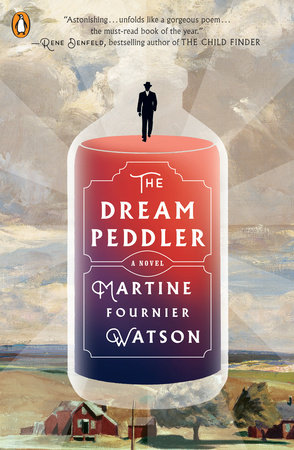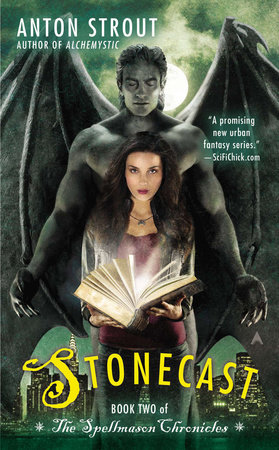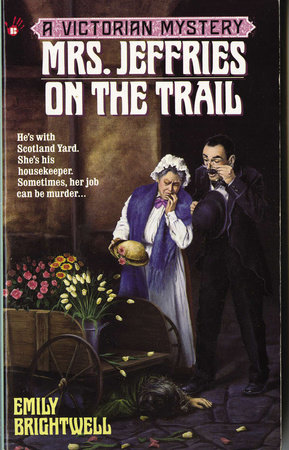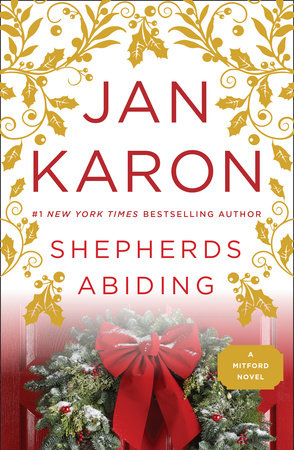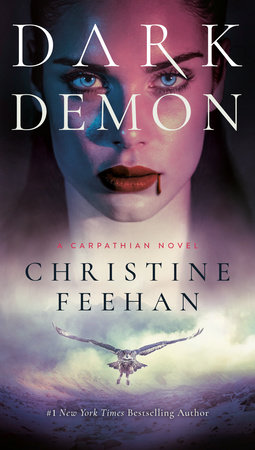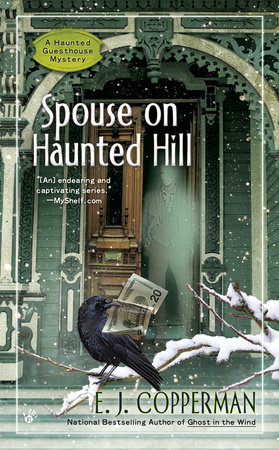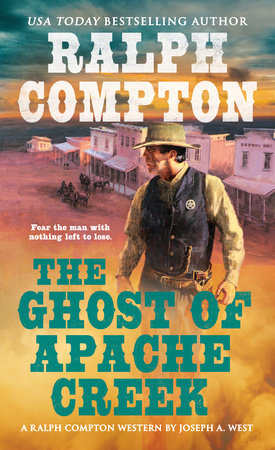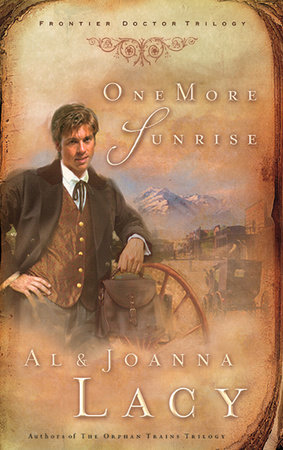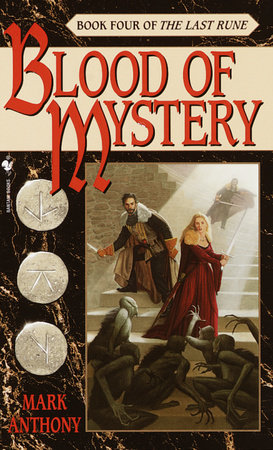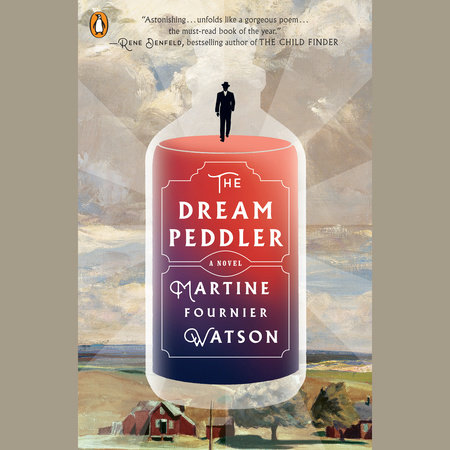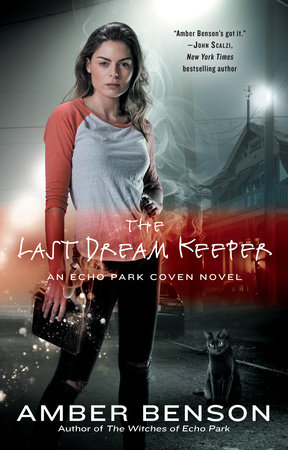Author Q&A
The Dream Peddler is your debut novel. What was the writing process like for a first-time author?
I’m sure the process is different for everyone, but in my case the dominant feelings were of joy and discovery. I had written one terrible book in my twenties, just to see if I could buckle down long enough to produce a whole book, and I’d set that aside. Almost fifteen years passed before I attempted another book project. Was I older and wiser? Perhaps. But I still approached writing with an optimistic belief that my experiments would magically turn into a coherent story. In other words, I’m a hopeless pantser.
I’m also not a particularly structured writer. At the time, I had just joined a writing group near our home in Pennsylvania, so I did have that weekly boost to look forward to and to keep me on track. For the most part, though, I just let the novel work its way through me in fits and starts, and in less than a year, it was done.
What inspired The Dream Peddler? How did the idea come to you?
I grew up on the stories of L. M. Montgomery, and have read and reread the adventures of her beloved Anne of Green Gables many times. But Montgomery’s lesser-known heroine, Emily of New Moon, was really my favorite. So I hope dear old Lucy Maud will forgive me for stealing her idea.
Emily has plans to be a writer, and in the third installment of Montgomery’s trilogy, reference is made to Emily’s very first novel, a book called A Seller of Dreams. However, this book is never published. After a few rejections, Emily gives the book to a trusted friend to read, and because he is jealous of the book, he tells her it’s not good enough. Heartbroken, Emily burns it.
For some reason, this destroyed book haunted my imagination. The reader is never given any insight as to what it may have been about, except that it was some kind of contemporary fairy tale. It was a book I always wanted to write myself, if only to satisfy my own curiosity about what shape such a story might take. I often wonder what Montgomery would have made of my efforts!
When you began writing the novel, did you always know how it was going to end? Were there any moments in the story that surprised you as you came to them?
I started my book with only a few characters and a vague idea of how it would end. As I went along I added more characters, and their desires really drove my plot. I was continually surprised by the people I invented and their choices. In the same way that I don’t plot before I start writing, I also don’t sit down and figure out who my characters are. Most of the fun for me comes from finding out more and more about them as I get deeper into the book.
For example, I had no idea when I began that Jackson was gay. I created Jackson as Christina’s first love interest, an interest that I believed would be misguided. As I painted him the kind of man I thought an inexperienced young woman might like—confident, funny, popular—I noticed his flirting was over the top. Outrageous, really, considering its frequency and scope. It didn’t seem to have any particular target. His sexuality came to me in a flash of realization. It was the perfect explanation for his behavior—he was trying too hard. This realization served a second purpose, as well, because I did know from the outset that many of the townspeople would have to turn against Robert to drive him out. Robert being privy to Jackson’s secret and Jackson’s resultant panic also gave me the dream peddler’s first enemy.
I didn’t plan Cora’s pregnancy, either. It simply grew out of her own feelings, her longing for romance, love, and adventure. I was taking a walk one day, thinking about my characters, and the question popped into my head: what if Cora became pregnant? I didn’t even know who the father was yet, or that she would offer the baby to Evie. It’s funny how these moments that are absolutely pivotal to the story were just a result of my musing and one thing leading to another.
You are a mother of two children yourself. How did your own experience with motherhood inform the writing of the mothers and mothers-to-be in the book—Evie, Rose, June, Cora?
This is definitely one reason why I don’t think I could have written this book when I was younger. I read somewhere that authors often use their writing to explore what terrifies them, and I think there’s no doubt I was doing that here. As soon as I had my son, I could imagine no worse fate than to lose him, and writing this book allowed me to explore that without actually experiencing it. Ben is nine years old in the book because that was my son’s age when I began writing. In some ways I modeled him after my own children, but I gave him more independence because of his era and situation.
Beyond that, though, I found that writing motherhood is just like writing any other aspect of a character—they can’t all be reflections of my own beliefs and experiences. So that was fun, to explore the ways that motherhood looks different for these different characters: June being warm, affectionate, and overbearing, for instance, while Rose is far more lenient and absent-minded, though just as loving in her own way.
And of course, I didn’t think about this until I considered this question, but Evie and Cora also make quite a contrast in terms of pregnancy—one trying unsuccessfully to conceive for so many years, the other finding herself pregnant unexpectedly and under disastrous circumstances. I honestly have no experience of either, so there, too, all I could do was imagine.
Robert is a mysterious character who deliberately keeps his own background opaque for much of the novel. Was it difficult to write a story in which one of the central characters has so many secrets?
I think I might have been too inexperienced or unselfconscious about that to find it difficult. Although I’ve always been an avid reader, I was really flying blind in terms of novel craft. I was pretty much learning about things like characterization, story structure, and pacing as I went along. I think that over many years of reading, I developed an instinct for the kind of details that help bring a character to life for a reader, and the trick with Robert was to give enough superficial details for the reader to have a strong sense of him, while still holding back the substance of who he is.
In some ways Robert was different for me than the other characters because I did know his backstory very soon after I began writing. I was no more than a few chapters in when I jumped ahead to write the scene where Robert describes to Evie how he burned down his home. I wrote it in one sitting, one of those rare times when a scene feels like it arrives fully formed, and all I have to do is transcribe it. I hardly made any changes to that dialogue, either, when it came time to edit. So that conversation was like a touchstone for writing the rest of the book. I understood why Robert had chosen to live a solitary, nomadic life, and I allowed that to inform everything he does. My goal was for the reader to either find him suspicious because of this, or, like Evie, to trust him without really knowing why.
I also think it helped to have such a large cast of supporting characters. Robert isn’t in every scene, not even close. By letting the reader deep into the hearts of the other characters, I could spend far more time exploring how Robert impacts their lives than the other way around.
What was your favorite part of writing this book? What was the most difficult part?
It’s so hard to choose a favorite part—there are always certain scenes and characters that provide no end of pleasure, and I had many. Ali was definitely one of my favorite characters to write, and I’m glad his role was expanded a little as I tackled the major edits. I also truly loved writing the dream sequences. There was something about the immediacy of them, the freedom of exploration they allowed, that was really compelling to write. They were also an incredibly useful tool for exploring the subconscious minds of the characters.
The most difficult scene was actually the one I thought would be easiest. (I’d love to take a poll some time to find out how many other authors have experienced that!) I had a lot of trouble with the scene in which Ben’s body is discovered. After torturing my characters for so long, I was anxious to get to it, and because it was momentous and important, I somehow thought the words would flow. What a surprise I got! I agonized over every detail, revisiting it so many times I lost count. Maybe this was because the scene bears such a heavy burden—I had to get it right.
Do you have many dreams yourself? Have you ever had a dream that was particularly meaningful or inspirational? How have your own experiences with dreams informed the dreams of your characters?
I think I must be one of the world’s most content people, because my dreams tend to be utterly mundane. I dream that I’m shopping at the grocery store or putting on makeup. I do have a couple of recurring stress dreams. I did a lot of theatre when I was growing up, and if I’m worried about anything I’ll dream that I have a role in a play and it’s time to go on stage but I haven’t learned the lines. Either that, or I’m responsible for getting someone, usually my mother, to a flight on time, but we’re hopelessly behind and it’s all my fault. Pretty typical stuff. Maybe that’s partly why I had so much fun with the dreams in this book.
Many years ago, I had a nightmare about my son dying. He was still a baby, barely crawling, but I dreamed he somehow climbed out of an open window on the second story of our new house and fell to his death. In the dream, I looked out of the window and saw him on the ground below. To this day, I’m certain the anguish I felt was as keen as it would have been in real life, except I was lucky and woke up. I was soaked in tears. It’s the only glimpse I’ve ever had into Evie’s loss.
What message or feeling do you most hope readers take away from The Dream Peddler?
As far as feeling goes, I hope people take away a sense that their lives are full of magic. I set this book early in the twentieth century because it was a time when American farming was in its heyday, and when traveling peddlers selling mysterious potions and snake oil were fairly common. But it also happens to be right on the cusp of Freud and Jung and the advent of psychoanalysis, when dreaming would suddenly be demystified once and for all. No more divine inspiration, no more magic. One of the things I wanted this book to be was a return to a more mystical time, when people weren’t certain where dreams originated and couldn’t be as quick to dismiss them as we are. And in bringing magic to the town, Robert serves as a reminder of the magic that was always there.
I didn’t intend to communicate any particular message, either, but realized after I had finished that certain moments in the book sit very close to my heart. When Robert puts his hand on Jackson’s chest and tells him that all of life’s adventures really take place there, that’s me talking. I believe in that. Maybe because I’ve always been a sucker for good books, because my interior life and fantasies are so vivid and fulfilling, I’ve never really thought that it matters whether a person spends their time skydiving or lying in a hammock. Both experiences can be equally enriching.
